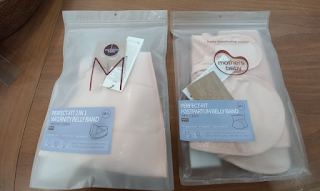Caring Infant Health The Role of Vitamin D and Probiotic
In earlier times, babies didn't need extra Vitamin D or probiotics.
When our grandparents think about it, they'd see that babies back then did just fine with only breast milk.
However, many mothers opt not to continue breastfeeding their babies for longer or cannot start due to various health issues.
As a result of this situation, infants frequently cannot obtain the necessary nutrients from breast milk.
Therefore, supplementing with additional vitamins has become an alternative to ensure the health of our babies.
Introducing Vitamin D and Probiotics during the first week is being introduced for boosting your baby's nutrient intake.
Infants can experience stomachaches and vitamin D deficiency, especially since they spend most of their time indoors.
Mothers have the option to buy these two items from the pharmacy and expect to use them for 12 months.
What roles do Vitamin D and probiotics play in infants?
Vitamin D can help strengthen an infant's bones and works with their immune system to prevent colds and other unpleasant symptoms.
Probiotics, which adults often consume for digestive benefits, can also aid in infants' digestion, making it smoother and preventing tummy aches and constipation.
Mothers can use these two supplements to enhance their baby's ability to stay healthy and avoid getting sick often.
How to use Vitamin D drops
There are three methods to apply the drops
Make sure the tip of the dropper does not come into contact with anything.
1. Place one drop per day on the nipple while breastfeeding.
2. Place one drop directly into the mouth.
3. Adding a drop to the baby's bottle but
This is not advised. If the baby doesn't consume all the milk in the bottle, it could lead to an incomplete dose of Vitamin D.
***
It is always a good idea to consult with a doctor before giving these to your baby to ensure everything is okay.





Comments
Post a Comment